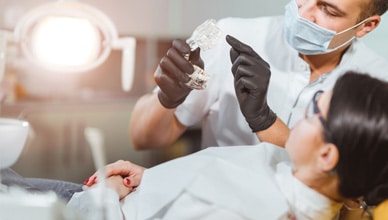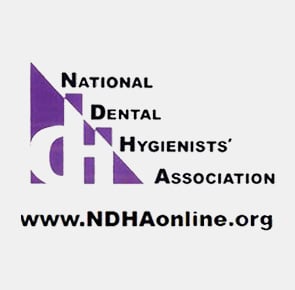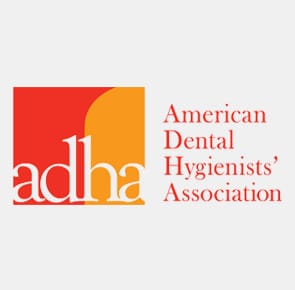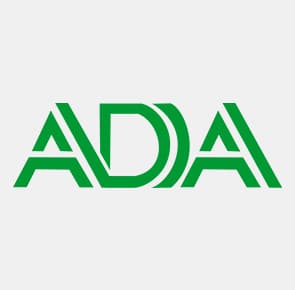What Does a Career in Dental Hygiene Entail?
Dental hygiene involves providing dental care to patients in a dental office or clinic setting. A dental hygienist performs dental examinations, cleanings, x-rays, and other preventive oral health services. The position requires attention to detail, multitasking, accurate record-keeping, knowledge of head and neck anatomy and dental radiology, and insight. The skills of these professionals are crucial to providing adequate service and care to patients and are taught in a dental hygiene program. A registered dental hygienist is the first to examine a patient and to detect signs of disease or abnormalities and provide oral prophylaxis, including treatment planning and use of preventative agents. Dental education prepares graduates with dental hygiene education, whether they completed a certificate or associate degree, to gain employment and success working in clinical settings, examining patients and performing their assigned duties. Experience adds to the ability to solve problems that arise and provide important insights into the patient’s situation and needs. Dental hygienists must maintain their knowledge level and adapt to new practices, innovations, and trends by continuing their education, using critical thinking, and working in clinical practice.
There are various occupations and options that those who complete a dental hygiene program can pursue. Educational options include specializations for those who have a certificate or associate degree programs, or even a Bachelor of Science degree in one or more fields of dental hygiene, and the pursuit of a master’s degree to open leadership and educator roles outside of dental hygiene practice. Career options include government positions, public administration of oral health programs, public health education, working in clinical practice, and teaching.
How to Earn an Online Degree in Dental Hygiene
The first step is to select an accredited dental school or program. Accreditation is a key to the value and usefulness of the certificate, associate, bachelor’s, or master’s degree. There are schools with specific dental accreditation, so that's something to look for as well when you are aiming for dental hygiene licensure. Once enrolled or admitted into a dental hygiene program, students must decide whether to attend online, on campus, or in a hybrid combination. Dental hygiene may be the major course of study; students can choose a related minor field.
An online associate dental hygiene program requires one to three years of attendance or 60 semester hours (most commonly, it is a two-year program); you will usually complete an Associate of Science dental hygiene program or an Associate of Applied Science dental hygiene program. A bachelor’s dental hygiene program requires 120 semester hours and takes about four years to complete the curriculum. A master’s degree requires that you already have a bachelor’s in some field. A online master’s degree often has a hands-on or capstone project at the end. The capstone is an opportunity to demonstrate a real-world grasp of some area of dental hygiene study.
What is the difference between a Dental Hygienist and a Dentist?
 Licensed dental hygienists and dentists work together to provide complete, efficient, and cost-effective care for patients including patient education, dental health promotion, and therapeutic services. Hygienists and dentists have different areas of concern that overlap in actual practice. A registered dental hygienist often works as part of a dental team, performing the initial examination and other work that prepares for the dentist’s examination and any required treatment or treatment planning. A dental hygienist's responsibilities typically include exams, reporting abnormalities and possible conditions, and cleanings and other disease prevention activities. Dentists usually use information provided by a dental hygienist to examine the patient, determine the care required, provide local anesthesia, and more. Dentists perform care such as extractions, fillings, crowns, and other procedures.
Licensed dental hygienists and dentists work together to provide complete, efficient, and cost-effective care for patients including patient education, dental health promotion, and therapeutic services. Hygienists and dentists have different areas of concern that overlap in actual practice. A registered dental hygienist often works as part of a dental team, performing the initial examination and other work that prepares for the dentist’s examination and any required treatment or treatment planning. A dental hygienist's responsibilities typically include exams, reporting abnormalities and possible conditions, and cleanings and other disease prevention activities. Dentists usually use information provided by a dental hygienist to examine the patient, determine the care required, provide local anesthesia, and more. Dentists perform care such as extractions, fillings, crowns, and other procedures.
A licensed dental hygienist can enter their field with a certificate or associate dental hygiene program, or they can earn a Bachelor of Science in Dental Hygiene. A dentist must attend a two- or four-year college level program and then complete four years of dental training and education that includes clinical practice under the supervision of a licensed doctor of dentistry. Dentists provide expert diagnosis, skilled treatment, and frequently have specializations beyond general dentistry. Dentists require a national or state license to practice dentistry and board certification for specializations.
Typical Dental Hygiene Degree Requirements
An online associate dental hygiene program requires a High School Diploma or GED for admission. Students that take science, chemistry, biology, and math coursework may have an advantage over those that do not. Each school sets standards and may add courses based on the applicant’s background and strength of record. The degree requires about 60 hours of semester credits divided equally between the general education and the dental hygiene educational core of major, minor, and elective courses.
A bachelor’s is a four-year degree that most students complete between four to six years of study. The requirements for admission to a bachelor’s program include a high school diploma or GED and any additional coursework the specific school may require. The degree requires about 120 credit hours, including about 60 hours of general education. A dental hygiene program major, related minor, and electives take about 60 semester hours. The average cost range is about $36,400 per year across public and private schools. Public schools charge lower rates and offer the lowest rates for in-state students.
An online master’s dental hygiene program requires a bachelor’s in any field, and additional coursework. Applicants with bachelor’s degrees in fields unrelated to dental hygiene may have additional coursework. Most students complete the degree in two to three years. The average annual tuition is about $8,670 at public universities and in the range of $29,960 at private universities.
Dental hygiene courses will cover pertinent subjects and may require prerequisite courses. These might vary from school to school, though most courses, including general education courses, will cover the same subjects. all available programs should give you the knowledge you need for dental hygiene licensure in the state where you attend school. Subjects might include the dental hygiene process, community oral health programs, dental materials, therapeutic services, disease prevention and disease control, head and neck anatomy, dental radiology, oral anatomy, training on infectious diseases, etc.
Typical Dental Hygiene Certifications Needed
Dental hygienists require a state administered written exam and a clinical assessment. Most states license dental hygienists or require some formal registration.
Academic Standards for Online Dental Hygiene Degree
 The course of study for a dental hygiene program must be comprehensive and require a minimum of two years of study. The course of study should have classes and experiences to develop competent oral health care providers. Dental hygienist graduates must deliver optimal patient care in a wide variety of practice settings, and they should be prepared to meet the changing needs of the healthcare environment.
The course of study for a dental hygiene program must be comprehensive and require a minimum of two years of study. The course of study should have classes and experiences to develop competent oral health care providers. Dental hygienist graduates must deliver optimal patient care in a wide variety of practice settings, and they should be prepared to meet the changing needs of the healthcare environment.
The standards for a dental hygiene program require competence in diagnosis to identify problems that the dental hygienist was trained to treat. Clinical competence is the goal of all basic clinical practice education for any student who will have to perform patient care. Laboratory instruction equips students to perform dental functions using models and simulations. A dental hygienist must also receive training that supports treatment for persons with disabilities or limited abilities.
Exam/Experience Needed for Dental Hygiene Degree
Each state sets their own requirements for registration and licensing dental hygienists. The typical requirements include at minimum the completion of an associate dental hygiene program from an accredited school and a passing score on standard written and clinical exams. Once licensed and registered, dental hygienists must meet any continuing education requirements. Because the application of drugs and other risks, many states require dental hygienists to have and maintain CPR (cardiopulmonary resuscitation) certifications.
Online Degree Options
The choice of healthcare degree program can be difficult, and some parts may depend on factors such as costs, time, family, work, and other obligations. This discussion will introduce the types of degree, sample coursework, subject focus, and requirements, and range of costs. An online associate dental hygiene program is a two-year degree; it is the basic level of education for entry into the dental hygiene profession. When combined with training, an online associate can qualify an applicant for taking a state or national exam to register as a dental hygienist.
A bachelor’s degree is the widely accepted standard for hygienists; it qualifies an applicant to meet the registration and examination requirements. This degree is a four-year credential that opens job and career opportunities in the dental hygiene field. An online master’s degree is less common, but it helps qualify applicants for senior-level administration jobs, teaching jobs, and public or government work. The online master’s degree requires one or two years for completion.
Online Associate Degree in Dental Hygiene
An associate in dental hygiene is typically offered in community colleges, technical schools, and in colleges and universities. The average completion timeframe is two to three years.
Sample Coursework for Online Associate Dental Hygiene Degree includes:
- Physiology and Human Anatomy
- Medical Ethics
- Patient Management
- Nutrition
- Radiography
- Pathology and Periodontics (The Study of Gum Diseases)
- Medical Assisting
Cost range for an associate degree is about $22,700 per year, and public schools usually have lower rates than private schools.
Online Bachelor’s Degree in Dental Hygiene
Bachelor’s degrees open many occupations in the dental hygiene field and related fields. The science orientation of the BS in Dental Hygiene prepares the graduates for the high degrees of change and innovation occurring in dental care settings.
Coursework for a Bachelor’s Degree in Dental Hygiene includes”
- English and Speech
- Sociology and/or Intro. to Psychology
- Oral Biochemistry, Microbiology, and Chemistry
- Anatomy and Physiology
- Nutrition
- Preventative Dental Care and Periodontal Disease
- Principles of Pharmacology
Concentrations for a Bachelor’s Dental Hygiene Program: Research, Cultural Diversity, and Health Administration
Online Master’s Degree in Dental Hygiene
An online master’s degree opens the education spectrum of career options, including college-level instruction, public health administration, health administration, expert consulting, and entrepreneurship.
Coursework for an Online Master’s Dental Hygiene Program includes:
- Systematic Research Writing
- Dental Hygiene Theory and Science
- Systemic Dental Conditions
- Geriatric and/or Pediatric Oral Health and Dental Issues
Concentrations for a Master’s Dental Hygiene Program: Research Methods, Education Administration, Public Administration, Entrepreneurship.
Degree and Tuition Cost Ranges
| Degree | tuition cost average | Full-time completion |
|---|---|---|
| Associate degree | $22,700 | two to three years |
| Bachelor’s degree | $36, 400 | four to six years |
| Master’s degree | $30, 500 | one to two years |
Earning Potential for Dental Hygiene Degree Fields and Occupations
There is substantial research and evidence to connect educational attainment with higher income. On average, people with entry-level and advanced degrees have higher levels of income than those that do not. The below-listed items show the direct relationship between education and salary.
Education Level & Average Median Compensation
- Secondary Education - $51,500
- Associate Degree - $57,100
- Bachelor’s Degree - $79,800
- Master’s Degree - $87,700
Experience and Median Compensation
 Entry level to mid-level compensation ranges describe the impact of experience on salary. These ranges also reflect the growth in the value of the occupation in the economy. Dental hygiene demand shows a national growth trend. Some Bureau of Labor and Statistics (BLS) information suggests that the greatest demand is in rural areas or areas with low availability of dental services.
Entry level to mid-level compensation ranges describe the impact of experience on salary. These ranges also reflect the growth in the value of the occupation in the economy. Dental hygiene demand shows a national growth trend. Some Bureau of Labor and Statistics (BLS) information suggests that the greatest demand is in rural areas or areas with low availability of dental services.
The entry-level median is about $51,073, and the experienced level median salary is about $58,000 according to the BLS. The industry pattern suggests that in many metropolitan areas, dental hygienists work part-time, use flexible hours to fit their schedules, and can often work for more than one dental office or clinic.
Dental Hygiene Fields of Study Median Salaries
Fields of Study
- Certified Dental Office Administration prepares graduates to direct day-to-day general operations for a dental office. This role includes scheduling and general upkeep of the facility, such as replacing any tools or equipment. In addition, the dental office manager may work closely with patients for appointments, resolving complaints, and managing issues related to dental care. The dental office manager also works closely with the dentists in the firm or office, which means they must be knowledgeable about common dental practices and techniques and communicate with dentists effectively.
- Dental Hygiene is the science of recognition and treatment of oral diseases, the practice of oral hygiene treats disease and uses education and knowledge to help patients prevent disease and complications. The discipline relies upon research and treatment of patients in dental care settings.
- Public or Community Health is the study of strategies to improve the health of individuals and communities. Community health collects data and analyzes patterns that can reveal areas of opportunity for improvements. Community health uses information and education to create positive change.
- Dental Sales involves distribution to the dental professionals, firms, health departments, and to the public.
- Dental Hygiene Education is the set of methods and standards for educating future dental hygienists and the public.
- Certified Dental Laboratory Technician prepares graduates to work in labs that support dental practices by making, repairing, or replacing prosthetic devices and dental apparatus.
- Registered Nursing is the licensed field of nursing care. The states regulate the education and licensing requirements including examinations, clinical examination, licensure, and continuing education.
Field of Study and Median Salary and Education Level
| Career- Experienced | Median salary Range | Degree and Experience Level |
|---|---|---|
| Certified Dental Office Administrator | $54,500 | Certificate |
| Community Health specialist | $73,330 | Associate w/ exp., Bachelor’s |
| Dental Hygienist | $72,330 | Associate degree w/ exp. |
| Public or Community Health Specialist | $49,212 | Bachelor’s degree |
| Dental Sales Representative | $49,997 +bonus | Bachelor’s degree |
| Dental Hygiene Instructor | $53,000 | Bachelor’s degree and exp. |
| Certified Dental Laboratory Technician | $57,000 | Associate degree, certificate |
| Registered Nurse | $67,490 | Bachelor’s degree, license |
Dental Hygiene Salaries by Occupation
Dental hygienists do not earn as much as dentists. While they work in close quarters with dentists to deliver care to patients, the dental hygienist’s role is more limited. The dentist’s educational requirements are more in-depth and take much longer to achieve. In the dental care structure, dentists are near the top. Dental hygienists can elevate their incomes to similar ranges by adding education and experience and moving into larger roles. Dental hygienists can become college-level educators and educational administrators. Dental hygienists can also enter healthcare administration and achieve top-level earnings.
Dental Hygiene Occupations
- A Certified Dental Practice Office Administrator manages a specific office or dental health function. They can manage compliance with health laws and regulations.
- Dental Hygienists perform initial examinations, cleaning, and x-rays for dental patients. They work with dentists to deliver high-quality dental care and instruction on oral health.
- Dental Assistants perform many tasks at the direction of a licensed practicing dentist or staff. Some states require formal training and an exam. In many states, there are no licenses, tests, or other requirements and they can learn on the job.
- Dentists are graduates of dental schools with DDS or DMD degrees. They are licensed professionals that diagnose and treat oral health conditions and diseases.
- College Instructor/Faculty play the important role of educating and training the next generation of dental hygiene professionals in community colleges and dental schools.
- Certified Dental Lab Technicians construct, maintain, and repair dental prosthesis and other devices.
Annual Salary Ranges by Occupation
| Occupation | Entry level | Mid-Career | Late-Career |
|---|---|---|---|
| Dental Hygienist | $55,100 | $61,200 | $62,700 |
| Dental Assistant | $31,000 | $32,900 | $39,700 |
| Dentist | $120,200 | $139,100 | $154,000 |
| Certified Practice Administrator | $56,500 | $71,900 | $81,000 |
| College Instructor/Faculty | $44,600 | $49,400 | $56,700 |
| Certified Dental Lab Tech | $28,300 | $46,400 | $58,600 |
Important Questions to Ask (FAQ)
How long does it take to earn a Dental Hygiene bachelor's degree online?
An online Bachelor’s Dental Hygiene program is a four-year degree. Online students can complete the degree in four years or eight semesters and graduate on time. Online students can pursue their degree on a part-time basis and use some on-campus classwork if they choose. Most schools set an upper limit for completing the degree. The typical upper limits are between six to eight years. However, if there are summer class options, or if you can carry a heavier credit load (over 15 credits per semester) you may be able to graduate early.
How much does an Online Dental Hygiene bachelor’s degree cost?
 The costs of a degree will depend on the school, the tuition rates, the cost of living on or off campus, and expenses. The average costs across public, private, in-state, and out-of-state tuition costs is about $36,500 per year. In-state public school tuition averages about $9,970, public out of state tuition averages about $25,600, and the private college average tuition is about $34,800. Using the average cost figure of $36,500 per year, then the average cost of a four-year degree would be approximately $146,000.
The costs of a degree will depend on the school, the tuition rates, the cost of living on or off campus, and expenses. The average costs across public, private, in-state, and out-of-state tuition costs is about $36,500 per year. In-state public school tuition averages about $9,970, public out of state tuition averages about $25,600, and the private college average tuition is about $34,800. Using the average cost figure of $36,500 per year, then the average cost of a four-year degree would be approximately $146,000.
Does the school have the major(s) you’re considering?
Dental hygienist students should try to align their job and career goals with the choice of school and/or dental hygiene program. If there are courses or subjects that seem important to job or career goals, then they should guide the selection of school or program.
How many students graduate “on time,” in four years?
 Most students graduate either on time or within 150% of the four-year term (six years). The school’s graduation rate is an important piece of information when considering a selection. The experience of the entire student body will likely be the kind of experience that the applicant will have. Schools with low on-time graduation rates cost more as each additional year raises the cost of education by 25%. The Department of Education’s College Scorecard.ed.gov website provides details about costs and graduation rates.
Most students graduate either on time or within 150% of the four-year term (six years). The school’s graduation rate is an important piece of information when considering a selection. The experience of the entire student body will likely be the kind of experience that the applicant will have. Schools with low on-time graduation rates cost more as each additional year raises the cost of education by 25%. The Department of Education’s College Scorecard.ed.gov website provides details about costs and graduation rates.
What Kind of Accreditation Does the Online Program Hold? How is it Regarded in the Field?
Accreditation is vital to dental schools and dental hygiene programs. Many states require attendance at an accredited institution for registration or licensure. Employers and other educational institutions rely upon accreditation when considering an applicant’s school records. The Commission on Dental Accreditation (CODA) accredits dental schools and dental hygiene programs. CODA is the sole accreditation agency recognized by the Department of Education.
Software, Technology and Skills Needed
Dental hygienists should be able to use a computer and a tablet or other mobile device for data entry, notes, and basic communications. They should be familiar with standard dental or medical office software such as medical records software, scheduling software, and word processing software. Dental hygienists must typically input records and patient data and then retrieve data. The competencies needed for practice include working in a dental examination room setting, a lab setting, and managing diagnostic equipment such as x-rays and imaging devices.
Dental Hygiene Scholarships
-
PN Foundation Healthcare Scholarships
Amount: $29,500
Deadline: February 15
Link: https://phnfoundation.net/healthcare-scholarships.aspx
Applicants must reside or attend school in the counties served by the Primary Health Network. Eligible applicants include students pursuing careers in healthcare or an allied health field including physician assistants, nurses, and other health positions.
-
Clarkston Scholars Program
Amount: $10,000
Deadline: January 15
Link: https://clarkstonconsulting.com/clarkston-scholars-program
This scholarship awards an outstanding second-year student at a four-year college in Pennsylvania. Eligible applicants must major in a life science or related field. The program offers internships and mentoring.
-
Vermont Dental Hygiene Scholarship
Deadline: March 16
Link: https://www.vsac.org/pay/applying-online-financial-aid/vsac-assisted-scholarshipsSponsored by the Hill Family and Delta Dental Foundation. Students from Vermont must attend a Title IV accredited institution in a two or four-year program for the Dental Hygiene profession. Students must reside in Vermont and meet the residency requirements.
-
CIGNA Foundation Tribal Scholars Healthcare
Amount: $2,666
Deadline: May 31
Link: https://collegefund.org/student-resources/
This Full Circle scholarship fund is awarded to US citizens of American Indian descent. Students should also inquire about extra eligibility for the related CIGNA Foundation Tribal Scholars Healthcare Program.
-
APIASF/United Health Foundation Scholarship
Amount: $15,000
Deadline: January 11
Link: http://www.apiasf.org/scholarship_apiasf_uhf.html
Eligibility is limited to persons of Asian or Pacific Islander descent. Students must be enrolled full-time and in the second year of study at an accredited institution. Students must major or intend to pursue a career in a health services field including dentistry and public health. Students must reside in the states of AZ, CA, CO, FL, GA, HI, KS, MN, NC, NM, NV, NY, TN, TX, WA or WI.
-
Two Ten Footwear Foundation
Amount: Up to $3,000
Applications open December 1, 2018
Link: https://twoten.org/get-help/scholarships/higher-education-scholarships/
The Foundation awards up to $3,000 per year renewable for four years. The foundation awards to employees and families of employees in the shoe industry. Eligible applicants must be citizens or legal US residents, show financial need, and be enrolled or about to enroll in a two-year or four-year college, vocational, or nursing school.
Professional Dental Hygiene Organizations
- NDHA
- ADHA
- DALE
- ADA

NDHA
National Dental Hygienists’ Association
NDHA is an excellent professional organization for the beginning or experienced dental hygienists. The association offers information and networking opportunities. It has continuing education programs to help members maintain good standing as licensed dental hygienists. The NDHA has an outreach and support activity to encourage greater minority participation in the profession.

ADHA
American Dental Hygienists’ Association
The ADHA association offers resources for new, experienced, and student dental hygienists. The SADHA has scholarship resources for undergraduate and graduate levels. It offers high-quality continuing dental hygiene education programs, and the ADHA has state-level organizations for professional members and students. It is an excellent networking resource for dental hygiene students and current practicing professionals of all levels of experience and fields of interest.

DALE
The DALE Foundation
The DALE Foundation is the ideal organization for students and dental hygienist professionals that wish to explore the career and occupation choices for dental hygiene students and graduates. This group features a wide range of continuing dental hygiene education that can reinforce or expand a graduate's skill set and knowledge base after they earn dental hygiene licensure. It offers study materials and informative insights into alternative hygiene related careers, innovative approaches to career development, and extensive career planning resources.

ADA
American Dental Association
The ADA is the leading professional and advocacy organization for the dental care professions. It provides up-to-date information for practitioners and the public. The ADA is a leader in promoting healthcare reforms for oral health and the association assists all levels of the profession with continuing dental hygiene education courses and resources.
Choosing an Online Accredited College
When selecting a school for a two-year, four-year, or master’s dental hygiene program, students should carefully consider the issue of accreditation. Employers and other educational institutions rely on accreditation as a guarantee of high-quality education in dental hygiene programs just as they do with other degree programs in other fields, so attending an accredited dental hygiene program, even a degree completion program, is essential. The main accreditation agency for dental hygiene programs is the American Dental Association, Commission on Dental Accreditation (CODA). Attendance at a American Dental Association (CODA) accredited institution is the best assurance that your degree will get wide acceptance among employers and educational institutions. When they see that you have completed a fully accredited dental hygiene program, they will know that your academics were top-notch.
Online vs. On-Campus vs. Hybrid
Dental hygiene students can choose from three modes of attendance to get an associate, bachelor’s, or master’s dental hygiene program. The can attend an on-campus program with classroom and lecture hall instruction. They can choose online education and complete a degree entirely through online coursework. They can use a mix or hybrid approach with some online and some on-campus classes.
The advantages of hybrid and online education are that students have few or no classes to attend on campus. Online attendance can reduce the travel time and cost of school. Online coursework is ideal for students that have jobs or businesses to attend to or other obligations that require time, attention, and presence.
Frequently Asked Questions
Does the College Have Post-Graduate Job Placement Help & Assistance?
A school, college, or university can help seniors, recent graduates, and alumni job searches and career development. Students should inquire about school resources for job placement and career assistance. Most schools are in an excellent position to recommend graduates to businesses and other employer communities. The types of assistance include job boards and extensive recruitment assistance for employers including scheduling and hosting interview events for employers.
A school or college is a community of corporate and business sponsors, alumni, and partners. Students can take advantage of membership in this larger community by networking and joining school organizations.
Why You Need to Consider How Rating/Accreditation Can Affect Your Salary?
Employers rely upon accreditation as a guarantee that the graduate received a quality education. Employers need to know that graduates can perform at the expected levels of excellence in the workplace setting. Institutional and program accreditation helps employers make sound hiring decisions. Employers frequently use reputation information about schools and the quality of their graduates when comparing applicants. Most educational institutions rely on accreditation and school rankings when deciding to accept earned transfer credits, graduate student admissions, and faculty hires.
Accreditation and rankings affect salary because accreditation and ranking affect the number of employers that accept and respect the degree. A wide group of potential employers will usually yield better offers and potential for career advancement. Students need to consider accreditation and ranking as factors in the job marketplace and career development.
Where can a dental hygienist work?
It’s true that a dental hygienist usually works in a private practice under the supervision of a dentist. However, there are other places that you might also find yourself working after completing your degree. These include correctional institutions, hospitals, nursing homes, public health clinics, schools, and more. While there are fewer of these positions than there are those in dentistry private practices, these are just as valid of options, and some can pay somewhat more than you might make working in a private practice in some places.
What academic skills will I need to succeed in dental hygiene?
You’ll need to have good skills in a variety of areas in order to complete a dental hygiene program. These include algebra, biology, and chemistry at least at a high school level. You’ll need to have solid skills in mathematics, reading, science, and writing. And you’ll likely need to pass courses in anatomy and physiology, organic or biochemistry, and microbiology in order to complete your program. Knowledge of dental hygiene will be integrated into these courses and others in order to give you fundamental and deep knowledge in the field.
Search All Programs
